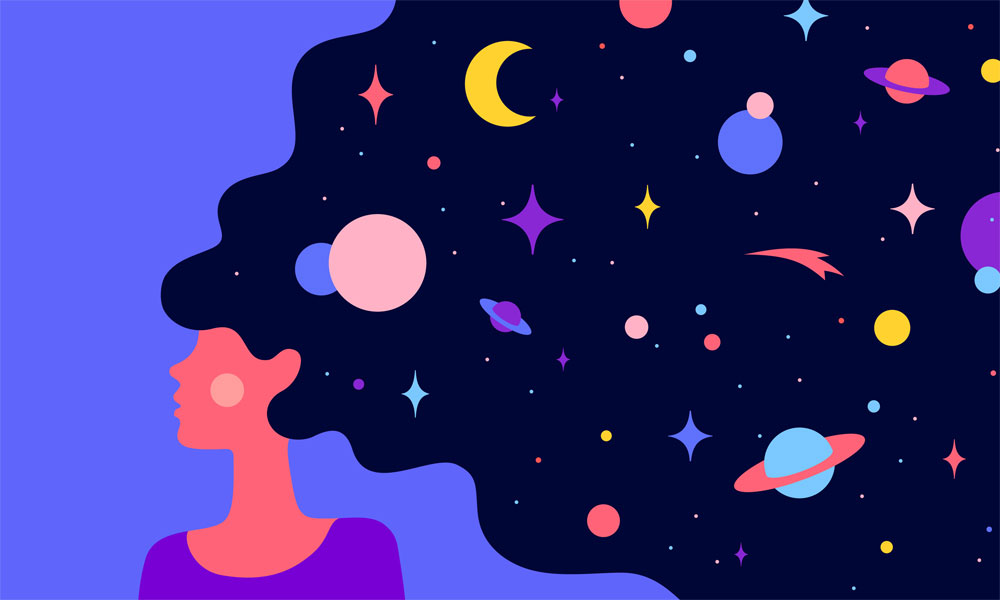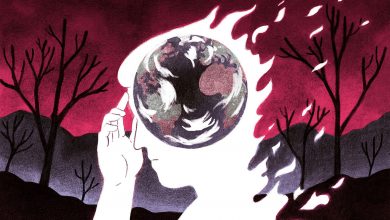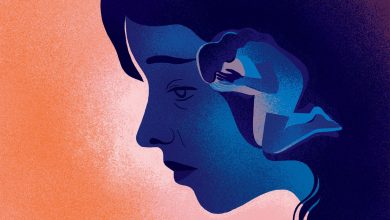Neuroscientists Reveal a New Theory of Dreams and Why They Happen

Neuroscientists’ new idea of desires means that we dream to make higher sense of our experiences. Dreams have fascinated people all through historical past, and the question of why we dream stays a thriller. However, new analysis inside the scientific group appears to have gotten nearer to the answer.
The speculation printed May 14 within the journal Patterns means that our desires assist our brains higher generalise our each day experiences. Neuroscientists have many different theories, however the summary nature of desires themselves has contradicted earlier hypotheses. This analysis, nevertheless, will get to the guts of the matter, taking an goal quite than conceptual strategy.
Dr. Erik Hoel, a analysis assistant professor of neuroscience at Tufts University, reveals a new idea of desires. He calls it the overfitted brain speculation, which states that the brains of organisms match too properly to their each day publicity to stimuli. In flip, this causes poor generalisation and overfitting. Dr. Hoel believes desires function a solution to right the brain’s generalisation errors. Dreams assist the brain “zoom-out” to get a clearer image of life’s experiences.
“There’s an incredible number of theories of why we dream,” says Hoel. “But I wanted to bring to attention a theory of dreamsthat takes dreaming itself very seriously — that says the experience of dreams is why you’re dreaming.”
The idea of desires compares the brain to machine studying
Dr. Hoel compares the brain to machines programmed by AI to carry out particular duties within the paper. When AI turns into too acquainted with the info, it’s educated. It typically assumes that it’s going to encounter these similar eventualities all over the place. In different phrases, because the AI learns, it performs properly on one dataset however doesn’t regulate properly to others.
Data scientists repair this common drawback by programming a bit of chaos into the info. In one regularisation technique referred to as “dropout,” scientists ignore particular information. In this fashion, the AI avoids overfitting and generalises experiences extra effectively.
Learn the right way to prepare your brain to be stress free…
You can evaluate this to random black bins all of the sudden showing on an inside display screen of a self-driving automobile. The automobile would see the black bins and focus as a substitute on the larger image of its environment. By not getting caught up within the particulars, the AI will higher perceive the broad expertise of driving.
“The original inspiration for deep neural networks was the brain,” Hoel says. And whereas evaluating the brain to technology shouldn’t be new, he explains that using deep neural networks to explain the overfitted brain speculation was a pure connection. “If you look at the techniques that people use in the regularisation of deep learning, it’s often the case that those techniques bear some striking similarities to dreams,” he says.
What does this imply?
Keeping this in thoughts, this idea of desires means that we dream of having a extra well-rounded understanding of the world. Much like deep neural networks concerned in AI and machine studying, our brains turn out to be too acquainted with a particular dataset in our each day life.
Dr. Hoel says that the brain creates a unusual model of our lives in our desires to fight this monotony. This compares to dropout in technology, which is smart as a result of our brains are huge computer systems.
“It is the very strangeness of dreams in their divergence from waking experience that gives them their biological function,” he writes.
There’s already proof to assist the brand new idea of desires.
Hoel says that some neuroscience analysis already exists that proves the overfitted brain speculation. For occasion, research have proven that people can induce desires about one thing that occurs whereas they’re awake. By performing a new process repetitively, you may primarily immediate your brain to dream if you sleep. Dr. Hoel explains that excessively coaching the brain triggers overfitting, so the brain generalises the duty by dreaming about it.
However, Hoel says that extra analysis is required to verify whether or not that is, in truth, the aim of desires. He explains that research ought to embody thorough behavioural checks differentiating between generalisation and memorisation and how sleep deprivation impacts each.
Also, he desires to research the concept of “artificial dreams.”
The overfitted brain speculation got here to him whereas considering the aim of fictional works of artwork like motion pictures and books. He posits that these artwork kinds could act as substitutes for desires.
He means that we could even create these outdoors stimuli to delay the cognitive results of sleep deprivation. It could function a waking dream by emphasising its dream-like nature by means of digital actuality technology, movies, books, and TV reveals.
Of course, you may all the time change off studying in AI neural networks, Hoel says, however brains don’t work that manner. Brains ought to all the time continue learning new things, and that’s the place the overfitted brain speculation comes into play. Dreams assist hold life attention-grabbing, taking the monotony out of our on a regular basis existence.
“Life is boring sometimes,” he says. “Dreams are there to keep you from becoming too fitted to the model of the world.”
This is undoubtedly an attention-grabbing new idea of desires that captures the complexity of the human brain. It does make sense that our brains would create plans to flee from our in any other case repetitive existence. Hopefully, future research will make much more fascinating discoveries concerning the goal of desires.
Final ideas on a new idea of desires and why they occur by neuroscientists
An thrilling new idea of desires means that we dream of a higher understanding of on a regular basis life. Neuroscientists evaluate our brains to machines in that each can carry out complicated duties by studying particular datasets. However, our brains are likely to get “stuck” in a explicit studying sample, stopping us from totally understanding actuality. Scientists consider that we dream of understanding on a regular basis life higher and keep away from overgeneralization.
Perhaps this examine will result in an excellent deeper understanding of this idea of desires. Scientists have contemplated the that means of desires for hundreds of years, however they’ve gotten a little nearer to fixing the thriller with this examine.












